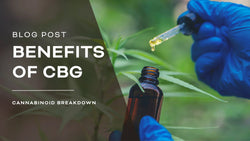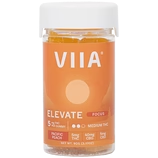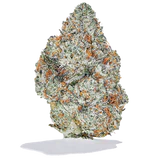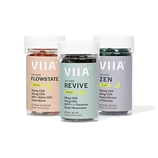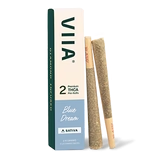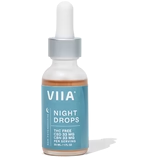 delta-9
delta-9What Is Delta 9 THC?
Delta-9 tetrahydrocannabinol, or simply THC, is a cannabinoid found in cannabis plants. This cannabinoid is responsible for the psychoactive effects of marijuana.
But what is delta-9, and what does it do?
In this post, we'll explore the effects of delta-9 on the body and mind and discuss how it's used in cannabis products. We'll also look at some of the latest research on delta-9 and its potential therapeutic benefits and how you can find legal delta-9 THC products in the United States.
So if you're curious about this important compound, read on!
Article Highlights:
- Delta-9, What Is it? Refers to THC, the main psychoactive component in the cannabis plant.
- Delta-9 is found in hemp (up to 0.3%) and marijuana plants (15–30%).
- THC interacts with CB1 receptors in the brain to produce effects such as a sense of euphoria, relaxation, and heightened senses. It's also been studied to have therapeutic benefits, and there are some medications made with THC to treat certain conditions.
- On a federal level, marijuana remains illegal. However, the 2018 Farm Bill legalized hemp production as long as it maintains less than 0.3% by dried weight basis.
- Delta-9 gummies made from hemp derived THC offer a discreet and delicious way to legally experience THC benefits.
What Is Delta 9 THC?
Delta-9 THC (Δ-9-THC) is the most well-known and researched cannabinoid, with a complicated legal status in the United States, as it's the primary active component in marijuana plants. However, researchers are finding that THC also has therapeutic properties that could help treat various conditions.
THC stands for tetrahydrocannabinol, and there are many forms of THC in cannabis, such as delta-8 and delta-10, which exists in much smaller concentrations, typically less than 0.1%.
In its raw form, THC exists in cannabis Sativa plants as THCa (tetrahydrocannabinolic acid), which is not psychoactive. The compound requires heat to break off the carboxylic acid chain, leaving behind the THC cannabinoid molecule that produces psychoactive effects. If you're curious about THCA, you can read more in our article about "What is THCA?" here.

How Does THC Work In The Body?
THC interacts with the endocannabinoid system, which is involved in various functions, including memory, perception, mood, and pain [1].
THC affects these functions by binding to the cannabinoid receptors and altering their activity. In other words, THC mimics the endocannabinoids that our bodies naturally produce.
It's thought that THC may also bind to other types of receptors, but this isn't well understood.
For example, it can increase heart rate and decrease blood pressure. It can also make blood vessels dilate (widen), leading to red eyes and a dry mouth.
THC can also affect coordination and balance by affecting the cerebellum, which is the part of the brain that controls these functions. This is why THC is believed to produce such a wide range of effects, from feelings of relaxation and anti-inflammatory support to impaired coordination. THC does store itself in your body after ingesting, so it's important to detox if you fully want to rid your body of the cannabinoid. You can find out more in our blog talking about how long delta 9 THC stays in your system.
Psychoactive Effects Of Delta 9 THC: What Does It Feel Like?
THC enters the body and binds to cannabinoid receptors found in the brain and throughout the nervous system. This binding activates the brain's reward system, releasing neurotransmitters that result in feelings of pleasure.
But what does the high feel like?
For starters, users typically report feeling relaxed and euphoric. It can also heighten your senses, making colors appear brighter and sounds may seem more intense.
Some people also experience increased appetite, often referred to as "the munchies." Of course, everyone experiences THC differently. Some people report feeling more sociable, while others may become more introspective and introverted.
But on the whole, THC produces pleasant psychoactive effects that many people love.
The effects of delta-9 THC can vary depending on the person, the dose, and the method of consumption. For example, smoking or vaporizing typically results in a more immediate and intense high than eating an edible.
Ultimately, the best way to find out what it feels like to be high on delta-9 THC is to try it yourself. But be sure to start with a low dose and go slow—you can always consume more if you don't feel the desired effects.

Is Delta 9 THC Legal?
Delta-9 THC has a complicated relationship with the law in many parts of the world
And it's also the reason that cannabis is illegal in most parts of the world. The marijuana plant is classified as a Schedule I drug under the Controlled Substances Act, which means that it has a high potential for drug abuse and no accepted medical use.
This classification is based on outdated science that doesn't reflect the current understanding of cannabis.
Numerous studies have shown that delta-9 THC can have therapeutic benefits for a wide range of conditions, including pain, anxiety, and nausea [2, 3].
As a result, some countries have begun to decriminalize or legalize cannabis. Some states have medicinal marijuana programs or have legalized it for creational use. However, in most places, marijuana remains illegal and it's possible to obtain THC legally.
Legal Status Of The Cannabis Plant
The legal status of the cannabis plant has been a hot-button issue for decades.
Most people use the terms hemp and marijuana interchangeably, but there is a big difference between the two plants. Marijuana is a species of the Cannabis sativa plant explicitly grown for its psychoactive properties. On the other hand, hemp is a variety of Cannabis sativa that contains only trace amounts of THC (up to 0.3%).
In other words, you can smoke all the hemp you want, and you won't get buzzed. This distinction is crucial because hemp can be used for various industrial and commercial purposes while marijuana is still illegal federally. However, many states have revised their marijuana laws allowing medicinal and recreational use.
The recent passage of the 2018 Farm Bill has opened up new opportunities for farmers to grow hemp and manufacturers to produce products made from its constituents, including THC.
Synthetic cannabinoids—those made in a lab and not extracted from hemp—remain illegal. Synthetic cannabinoids are dangerous and don't have the same effects as naturally-derived cannabinoids [4].
Though the legal landscape surrounding cannabis is remains complex, it's clear that attitudes are changing and the plant is slowly but surely becoming more accepted.
How To Find Legal Delta 9 THC Products
Are you searching for legal delta-9 THC products but don't qualify for a medical cannabis license?
Here's what you need to know.
Thanks to the 2018 Farm Bill, it's legal to cultivate THC products from hemp plants.
When shopping for legal delta-9, make sure that the product is clearly labeled as containing delta-9 THC from hemp crops—not marijuana, and that the THC content of the product doesn't exceed 0.3% by dried weight.
Secondly, check the source of the product. Only purchase products from reputable sources that are transparent about their hemp farming and extraction processes.
The only way to ensure you're getting a quality product is to reference the certificate of analysis posted on the lab testing page of the brand's website. It should provide information about the cannabinoid profile, potency, and testing for contaminants, such as pesticides, solvents, and mold.
Finally, be aware of your local laws regarding delta-9 THC. In some states, it is legal to purchase and consume hemp-derived delta-9 THC products, following the Farm Bill guidance, while other states have set regulations to ban THC altogether. Rest assured, the Delta 9 gummies available on our site are 2018 Farm Bill compliant and 3rd party lab tested for potency and purity like we've suggested.

What Are Delta 9 Gummies?
Delta-9 gummies are a type of cannabis-infused edible featuring delta 9 THC.
VIIA Hemp's Delta-9 gummies are made from simple, high-quality vegan ingredients low in sugar. They feature whole hemp extract with elevated THC levels while still maintaining Farm Bill compliance, which states that as long as the delta-9 THC in the product is less than 0.3% by dried weight volume, it's federally legal.
These gummies offer psychoactive effects to produce full-body relaxation and an elevated mood to bring a sense of contentment and peace of mind to people who can't get ahold of legal marijuana products in their state.
Remember, delta-9 THC gummies can be derived from hemp and marijuana strains of cannabis, which isn't federally legal. So before purchasing a delta-9 gummy, be sure to check its cannabis source and your local laws.
What's The Difference Between Delta 8 and Delta 9 THC?
Delta-8 and delta-9 are both tetrahydrocannabinol—the difference lies in their chemical structure and the quantities found in cannabis plants.
They're what are called isomers of the THC molecule.
An isomer is a molecule with the same chemical formula as another molecule but with a different structure. In the case of delta-8 and delta-9 THC, both molecules have the chemical formula C21H30O2 —but they differ in the arrangement of their atoms. This may not sound like a big deal, but it actually results in significant differences in how these two compounds interact with the human body. For example, delta-9 THC is more psychoactive than delta-8 THC.
Delta-8 THC is found in smaller concentrations in nature, but it actually has a more powerful binding affinity for the body's cannabinoid receptors. This means that it can produce similar effects to delta-9 THC, but it is also less likely to cause anxiety or paranoia. In addition, delta-8 THC is metabolized more slowly by the body, so its effects tend to last longer. You can read more into the differences between the cannabinoids in our other blog post about Delta 8 vs Delta 9.
What's The Difference Between THC and CBD?
While THC is probably the best-known active compound in cannabis, the plant produces many other cannabinoids, including CBD.
CBD or cannabidiol is the prominent cannabinoid found in hemp studied for its many potential health benefits without causing any psychoactive effects.
THC binds to cannabinoid receptors in the brain, producing the psychoactive effects associated with marijuana use. On the other hand, CBD does not bind as powerfully to these receptors. Instead, it interacts with different receptors in the body, providing many other potential health benefits. Additionally, CBD is thought to counteract some of the adverse effects of THC, such as anxiety and temporary memory impairment.
Final Thoughts: What Is Delta 9?
Delta-9 THC is the active ingredient in cannabis. It's the part of the plant that gets you high. However, delta-9 THC is also found in minimal amounts in hemp plants. When hemp was legalized in 2018, the Farm Bill created a grey area for delta-9 THC products. Technically, any hemp product that contains less than 0.3% Delta-9 THC is considered legal under federal law. However, state laws vary, and some states have stricter regulations. So, the best way to ensure that you are buying a legal product is to check the labels and make sure that the product contains less than 0.3% delta-9 THC from hemp plants.
You should also check the retailer or manufacturer's website to see if they provide any additional information about the legal status of their products.
Keep in mind that the legal landscape around cannabis is constantly changing, so it's always a good idea to stay up-to-date.
Resources Cited:
- Zou, S., & Kumar, U. (2018). Cannabinoid receptors and the endocannabinoid system: signaling and function in the central nervous system. International journal of molecular sciences, 19(3), 833.
- Naef, M., Curatolo, M., Petersen-Felix, S., Arendt-Nielsen, L., Zbinden, A., & Brenneisen, R. (2003). The analgesic effect of oral delta-9-tetrahydrocannabinol (THC), morphine, and a THC-morphine combination in healthy subjects under experimental pain conditions. Pain, 105(1-2), 79-88.Chicago
- Parker, L. A., Rock, E. M., & Limebeer, C. L. (2011). Regulation of nausea and vomiting by cannabinoids. British journal of pharmacology, 163(7), 1411-1422.
- Salani, D. A., & Zdanowicz, M. M. (2015). Synthetic cannabinoids: The dangers of spicing it up. Journal of psychosocial nursing and mental health services, 53(5), 36-43.

